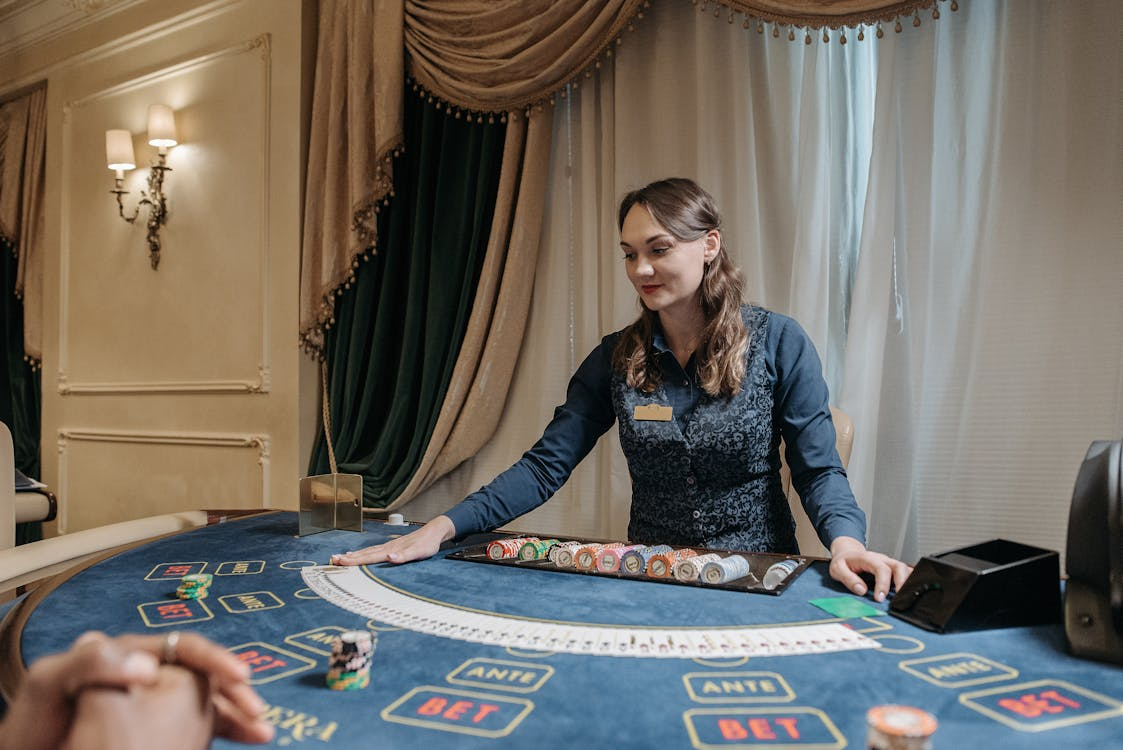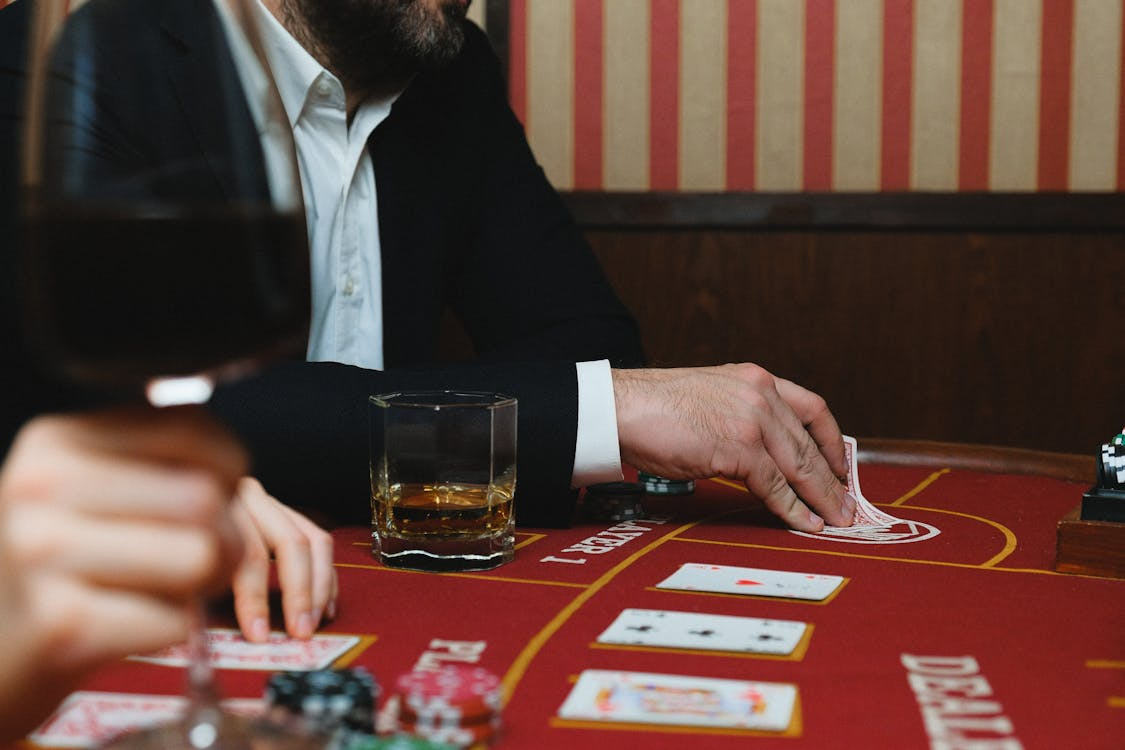- What Are Baccarat Odds, Really?
- The Banker Isn’t Just a Safe Bet—It’s the Smart One
- Player Bets Are Fine—Just Know the Tradeoff
- Tie Bets Look Tempting but Don’t Be Fooled
- The Commission Myth: Is It Worth Skipping?
- Why Odds Matter for Player Psychology
- Betting Systems and Odds: Are They Worth It?
- Live Dealer Baccarat vs. RNG: Does the Format Affect Odds?
- Side Bets and Their Real Cost
- Baccarat Odds and Campaign Strategy: A Marketer’s Angle
- Final Thoughts: The Edge Isn’t Always at the Table
Casino games have always thrived on chance, but not all games are created equal when it comes to odds. Baccarat—often seen as sleek, fast-paced, and favored by high rollers—actually offers some of the most player-friendly odds on the floor. But just because the numbers look good doesn’t mean they’re always understood. And if you’re placing bets—or running campaigns that target players who do—it’s worth knowing exactly what those odds are saying.
There’s a reason savvy bettors and sharp advertisers alike care about baccarat odds. They reveal not just the statistical edge in the game itself, but also the mindset of the players drawn to it. And in a space where strategy, risk, and emotion intersect, having a handle on the real numbers can be a game-changer—both at the table and behind the scenes.

Photo by Pavel Danilyuk
| Item | Details |
|---|---|
| Topic | Behind the Numbers: What Baccarat Odds Really Tell You |
| Category | Ads |
| Key takeaway | Casino games have always thrived on chance, but not all games are created equal when it comes to odds. |
| Last updated | December 27, 2025 |
baccarat-odds-really" class="wp-block-heading">What Are Baccarat Odds, Really?
Let’s start at the ground level. Baccarat is a game of comparison: the player hand versus the banker hand. Whichever comes closest to a total of 9 wins. That’s it. No bluffing, no complicated hands to memorize. Just simple outcomes—and simple odds that tell an interesting story.
There are three core bets in standard baccarat:
- Player Bet
- Banker Bet
- Tie Bet
Each comes with its own probability of success and house edge. And those differences matter more than many casual players realize.
The Banker Isn’t Just a Safe Bet—It’s the Smart One
If you’ve ever been told to “always bet on banker,” there’s a reason. Statistically, the banker bet has the best odds of winning.
- Banker win probability: ~45.86%
- Player win probability: ~44.62%
- Tie probability: ~9.52%
The house edge for each?
- Banker bet: ~1.06%
- Player bet: ~1.24%
- Tie bet: ~14.36% (!)
Yes, the casino actually gives you the worst deal if you bet on a tie. More on that soon.
So why is the banker favored? It comes down to the rules around how cards are drawn. The banker gets to react to the player’s third card in certain cases, which gives that hand a slight advantage. Casinos know this, which is why they usually take a 5% commission on banker wins.
Still, even with the commission, the banker remains the best statistical play.
Player Bets Are Fine—Just Know the Tradeoff
While betting on the banker is statistically superior, some players prefer to avoid the commission or follow superstitions about “hot streaks.” Player bets win just under 45% of the time and come with a slightly higher house edge (about 1.24%).
From a casual standpoint, the difference might feel negligible. But for high-volume players or those developing betting systems, that 0.18% gap adds up. If you’re building a campaign or targeting baccarat players specifically, knowing who leans toward banker versus player can actually inform your segmentation strategy.
Tie Bets Look Tempting but Don’t Be Fooled
Here’s where things get a little sneaky. Tie bets usually offer an 8:1 payout, which seems generous—until you realize how rarely they land.
Only about 1 in every 11 hands ends in a tie. The house edge? A steep 14.36%. Some casinos offer a 9:1 payout on ties, which lowers the edge slightly but still doesn’t make it a smart play.
For marketers, this bet can be a great behavioral flag. Players who consistently go for tie bets might be more risk-tolerant, more impulsive, or more interested in high-reward situations. If you’re running ad copy or pushing promotions, that insight might shape how you frame your messaging.
The Commission Myth: Is It Worth Skipping?
One reason some players avoid the banker bet is that 5% commission. After all, why bet on something where you lose a slice of your winnings, right?
Here’s the truth: even with the commission, banker is still statistically superior. That small cut is built into the odds, but it doesn’t outweigh the advantage the banker hand holds. Over time, the numbers favor those who stick with it.
Of course, some online platforms now offer “no commission baccarat,” but these often come with alternate rules—like reduced payouts when banker wins with a 6. Always check the fine print.
Why Odds Matter for Player Psychology
Let’s zoom out. Understanding baccarat odds isn’t just a numbers game—it’s a psychology game. Players who favor baccarat tend to like:
- Low volatility: Unlike slots or roulette, the swings in baccarat are gentler.
- Quick resolution: Each hand plays fast, which keeps engagement high.
- Perceived control: Even if outcomes are determined by fixed rules, choosing banker vs. player gives a feeling of agency.
For advertisers or developers, this means baccarat players often seek a sense of rhythm and reliability in their gaming experiences. Odds awareness becomes a proxy for trust and confidence—and that can shape brand loyalty, click behavior, or conversion likelihood.
Betting Systems and Odds: Are They Worth It?
From the Martingale to the Paroli, there’s no shortage of betting systems designed to “beat” baccarat. Here’s the catch: none of them change the odds of the game itself.
Baccarat is a game of independent outcomes. Just because banker won five times in a row doesn’t mean the player is “due.” That’s gambler’s fallacy. But betting systems can help players manage bankroll, ride streaks, or create a sense of structure.
For marketers, this means content about betting systems performs well—because it taps into the desire for control. Educational or interactive tools that “simulate” these systems can also be powerful lead magnets.
Live Dealer Baccarat vs. RNG: Does the Format Affect Odds?
With the rise of live dealer casinos, baccarat has gotten a fresh facelift. But does playing live change the odds?
Not really.
- The probabilities remain the same.
- The house edge doesn’t change.
- What does change is the player’s perception.
Live baccarat adds human interaction, dealer rhythm, and sometimes even side bets or squeeze features (where the cards are revealed slowly for suspense). These don’t affect base odds—but they do increase session time and player immersion.
If you’re in affiliate marketing or user acquisition, it helps to know that live formats tend to boost retention. Just don’t mistake more engagement for better odds.
Side Bets and Their Real Cost
Many baccarat variants now offer side bets, like:
- Player/Banker Pair – Pays 11:1 if the first two cards are a pair
- Perfect Pair – Pays 25:1 or more
- Big/Small – Bets on the total number of cards drawn
These sound fun—and they are—but most come with house edges well above 10%. That makes them more like slots in disguise than core baccarat.
Side bets are popular with newer players, so if you’re creating targeted content or ad funnels, these features can be great hooks. Just make sure any odds breakdown doesn’t overhype the payouts without addressing the risks.
Baccarat Odds and Campaign Strategy: A Marketer’s Angle
So, what does all of this mean for performance marketers or ad tech professionals?
It means baccarat is more than just a classy table game—it’s a predictable and data-rich environment:
- Odds help define player types (low-risk banker bettors vs. high-risk tie lovers)
- Payout structures shape engagement length and retention
- Betting behavior correlates with psychological profiles advertisers can target
If you’re promoting baccarat content, odds are your sharpest asset. Use them to frame educational copy, write quiz-style blog posts, or craft landing pages that build trust by teaching instead of just pitching.

Photo by Anna Shvets
Final Thoughts: The Edge Isn’t Always at the Table
Understanding baccarat odds isn’t just about winning the next hand. It’s about seeing the bigger picture—whether you’re a player looking for better decisions or a marketer shaping smarter campaigns.
The banker bet might quietly offer the best shot. The tie bet might scream for attention but rarely delivers. And the player bet? It’s right there in the middle, appealing to those who want a fair shake without a cut.
Odds don’t just affect the outcome—they shape the story around every bet. And if you know how to read them, you’re already playing a sharper game than most.










